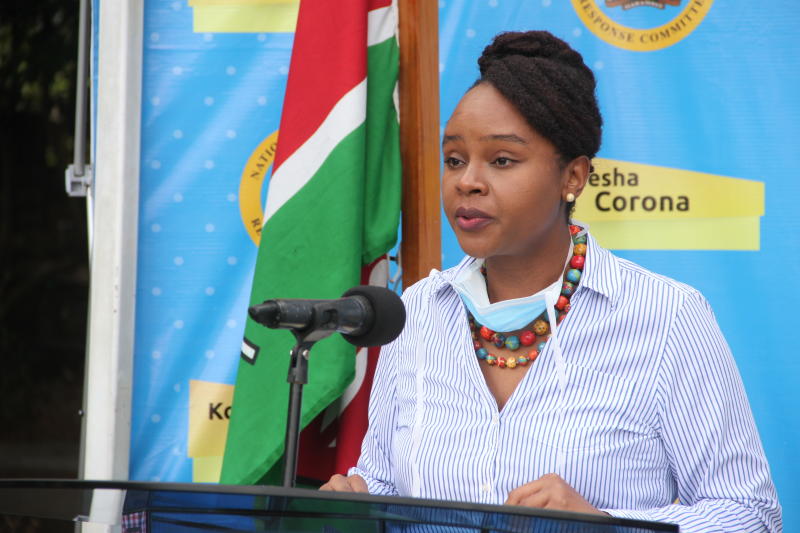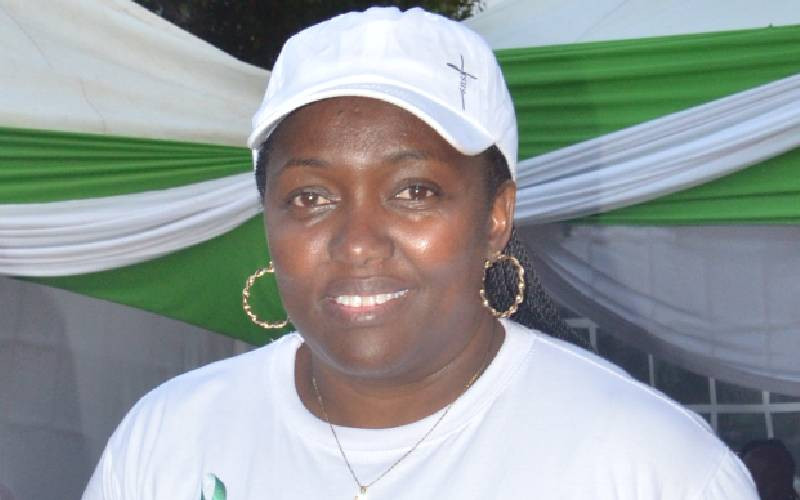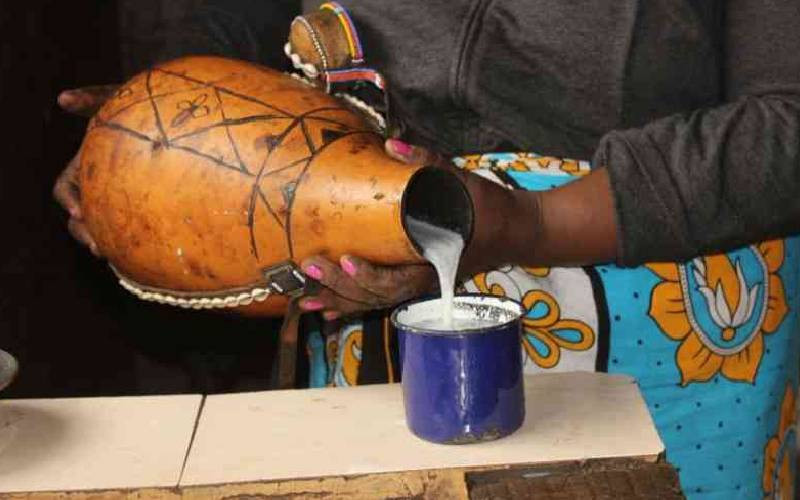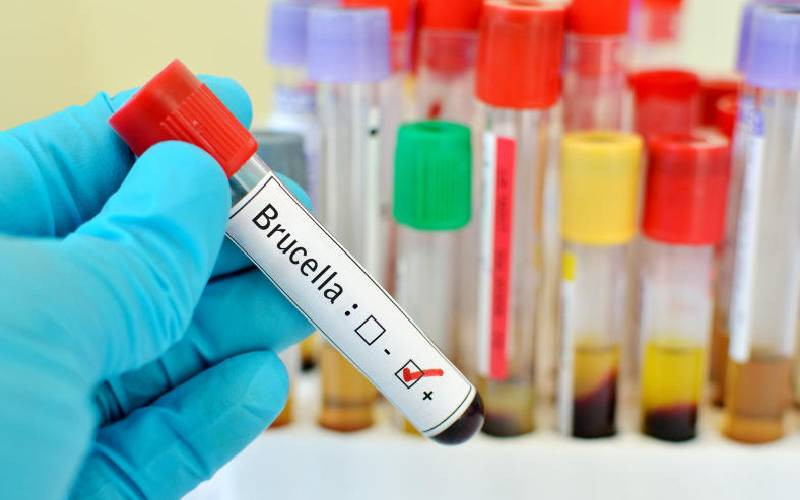
Do you think Covid-19 might be a blessing for African countries in the long term, medically speaking?
Every dark cloud has a silver lining. Covid-19 has shed a light on how we programme our public health interventions and investments in public health security. I would not say it is a blessing, but rather a much needed lesson and push for us to be able to reprogramme the way we do things and pay attention.
There have been debates that we are giving Covid-19 undeserved focus in Africa and straying away from other equally important health concerns in the continent. Are we?
There is need for a fine balance; coronavirus is not waiting for other diseases, and neither has it put a pause on them.
There is still a lot of background work going on in the other disease programmes even as we focus on the Covid-19 response. The fear is that our country might fall into the situation like the one facing developed countries, so Covid-19 has become a priority.
There are some who accuse the ministry of lacking strategy. What is your take?
We have a well thought-out contingency and response plan that was reviewed by several stakeholders including the World Health Organisation and Africa Centres for Disease Control and Prevention. It is the blueprint that we are using.
It looks at what three months, six months or even the post-coronavirus health sector interventions would look like.
There is suspicion that the Health ministry is managing the public by deliberately understating the number of positive cases. Is this true?
The numbers that we capture are highly dependent on the numbers that we test. If we doubled the numbers we test by increasing our capacity, we would capture more.
We are also looking at our surveillance data in terms of the pneumonia cases in our health facilities to determine the true load of coronavirus. We are trying to review all the patients with a history of fever or any respiratory illness in our sentinel surveillance sites.
What is the actual daily testing capacity?
Our capacity is 30,000 tests per day, but right now we are at an average of 1,000 tests per day.
What is the status of full Personal Protection Equipment (PPE) for front line workers in the country? Do we have enough?
A full PPE kit is dependent on the area where the healthcare worker is. If in isolation or quarantine site with confirmed or suspected cases, they must have face shields or goggles to protect their eyes, the right face mask, a full gown or suit, and appropriate type of gloves and gumboots.
For healthcare workers in isolation units, we are prepared. I would not allow any healthcare worker to get into those spaces without the right protective gear.
Since patients are still coming into health facilities, another group of healthcare workers in outpatients or casualty units are at risk. For this group, we have the N95 masks and appropriate gloves.
Some 4,500 full kits and 200,000 components such as gloves and N95 masks have been distributed throughout the country. High burden counties of Mombasa, Nairobi and Siaya have each received more full kits. The counties have also supplemented this, and we are not receiving any complaints from them.
Are all these PPEs from donors?
Ninety per cent have been financed through government resources, but we also have donations from the business community.
There have been reports of fake PPEs in the US. Have you encountered any in Kenya? What controls are in place?
It is important that PPEs offer protection. As a ministry, we ensure that accreditation mechanisms are more robust. We are working with other regulatory authorities to ensure that they are of good quality.
The Cabinet Secretary has also made sure that the kits are acceptable by healthcare workers by involving them in the design process for their comfort and protection.
What is your target and protocol for mass testing? What would mass testing look like?
Ideally it would involve testing the susceptible population in the country, which should be everyone, but we have to rationalise our testing. We are beginning with targeted testing. We will start with a cohort of 20,000 tests for our healthcare workers for their own protection and any Kenyan interacting with them.
The police and other security personnel will be next. We have identified areas and groups in different parts of the country.
Community screening through community health volunteers to pick out fevers of unknown origin through temperature screening is another area we are exploring, in addition to rapid testing and antibody surveillance testing.
There is a shortage of testing kits globally. How many kits do we have? How are the kits distributed nationally?
We have 10 active testing sites in the country, but we are looking at accrediting more and activating 193 GeneXpert machines so that every county has capacity to test.
Chinese billionaire Jack Ma donated about 20,000 kits, but a kit alone is not sufficient without the swabs to collect samples and other components to make a successful test run. Our biggest limitation to testing is not the kits, but the components to run the tests.
How much has been spent so far from the Covid-19 kitty?
Sh1 billion has been expended, but we are in negotiations with the World Bank for Sh5 billion more.
Will some of the money cater for the cost of isolation for Kenyans who are in mandatory quarantine and isolation?
It’s clear that there are vulnerable groups that require this. We are doing a billing study in the ministry to look into this. Some people have incurred between 250,000 to Sh1 million for ICU care. With the various health committees in parliament, we are looking at how to cushion Kenyans from these costs that would be prohibitive for the common mwananchi.
When can Kenyans expect home-based quarantine and isolation?
Home-based care is an intervention that we are considering through a team that is looking at case management to weigh the ideal situations in which it can be rolled out.
Our situation might be protracted and it might be unsustainable to run the current interventions as they are. Home-based care will offer a much needed relief to the health system but it requires discipline from Kenyans. They have to put in place measures at home to make sure that other family members do not contract the virus. There is a fine balance in executing home-based care and making sure that the implementation is done right.
Can our front-line medical personnel expect new allowances?
We have proposed a comprehensive care package for our front-line workers. Different healthcare workers have different packages. Life insurance covers are also on the table should they be affected. Others are allowances in terms of risk and exposure and a package for psycho-social support. The Cabinet is currently deliberating on this and once done, through the Public Service Commission and the Ministry of Health, we shall unveil it.
When do you expect to flatten the Covid-19 curve and relax the stringent containment measures? What would be the criteria?
Non-pharmaceutical interventions from every individual is key. Our people are the ‘social vaccine’ for Covid-19.
So far we are not doing very well. For example, we still see some individuals crowding in spaces and not observing physical distancing.
Countries that strictly implemented the measures we have put in place managed to flatten the curve, and when they relaxed the measures, they saw a resurgence of the virus.
We should see these measures as a new normal that we have to adopt and probably learn to live with coronavirus.
Will things ever go back to normal?
Experts say this wave may subside but in another two to three years we might see another pandemic. We have to be prepared for pandemics by changing how we live, moving forward. I do not see us going back to previous ways of doing things.
 The Standard Group Plc is a multi-media organization with investments in media
platforms spanning newspaper print
operations, television, radio broadcasting, digital and online services. The
Standard Group is recognized as a
leading multi-media house in Kenya with a key influence in matters of national
and international interest.
The Standard Group Plc is a multi-media organization with investments in media
platforms spanning newspaper print
operations, television, radio broadcasting, digital and online services. The
Standard Group is recognized as a
leading multi-media house in Kenya with a key influence in matters of national
and international interest.











